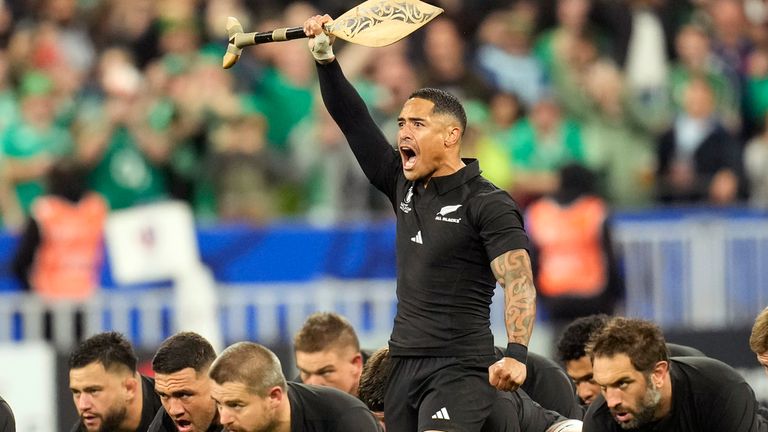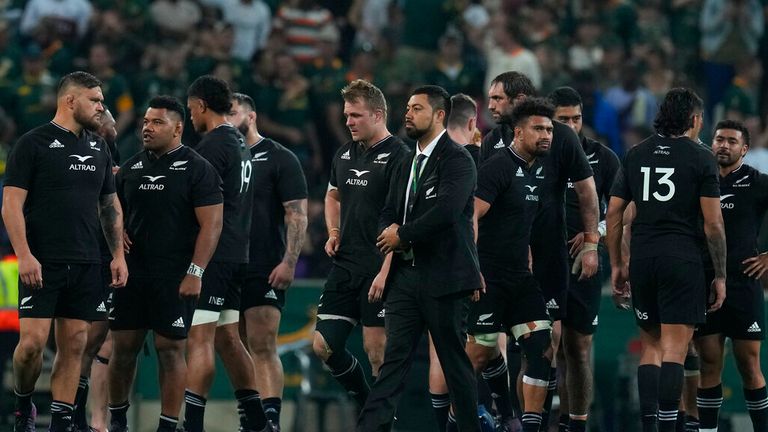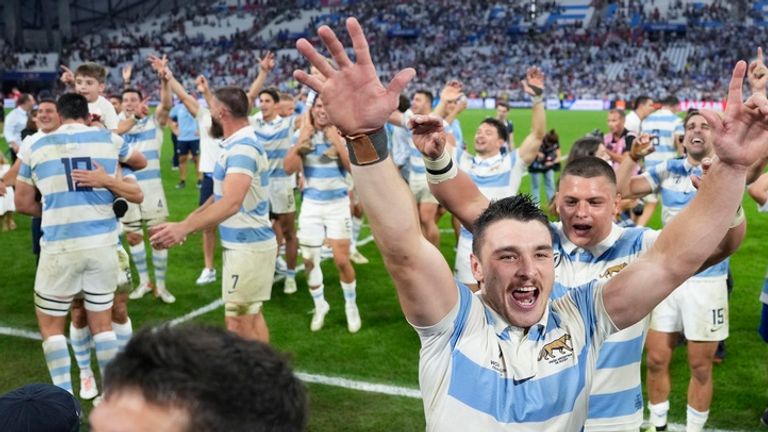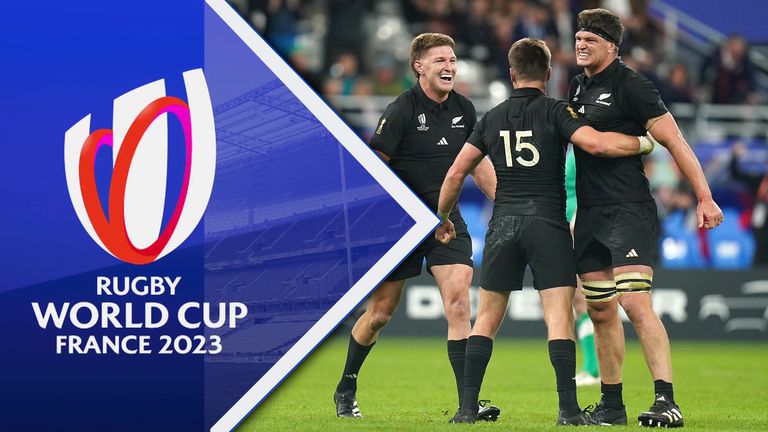Rugby World Cup: Rejuvenated New Zealand out to reclaim aura of the All Blacks as place in final beckons

New Zealand seems to have rediscovered its charisma during the Rugby World Cup
There is an almost sadistic cruelty in the fact that New Zealand have no time to bask in the glory of their quarter-final victory over Ireland.
In sports, more often than not, the hype exceeds the spectacle. A match that has built up to almost impossible heights, only for the game itself to become a war of attrition; of two teams too aware of what is at stake. Not trying to win, just trying not to lose.
Every now and then, and that’s really rare, a game lives up to its expectations. Even rarer is that it exceeds the expectations of even the biggest fan.
That happened on Saturday in Paris. 24 hours later it happened again.
Some are calling it the best weekend in rugby, and when the dust settles, it will most likely be viewed that way.
But such praises must wait. While the stories of Ireland, France, Wales and Fiji have been written, four teams have yet to write defining chapters.
It seems remarkable given what we saw last weekend, but there is still time for the campaigns of our four semi-finalists to go down as a bust in some quarters.
In sport, no matter what height you’ve climbed, you’re never too far from a place that could be considered rock bottom.
Just ask All Blacks head coach Ian Foster.
In August 2022, the New Zealand herald took the step of publishing a front-page editorial calling on Foster to go.
This wasn’t just a typical disgruntled fanzine’s knee-jerk reaction to a loss. This, the Herald judged, was a necessary intervention to preserve the legacy of the country’s most hallowed institution.
This obviously does not mean that one newspaper speaks on behalf of a country. In this case, however, the sentiment did reflect the national mood towards the team.
After losing a home game to Ireland, the All Blacks were swept aside by South Africa in a one-sided Rugby Championship match in Nelspruit.
It was the fifth defeat in six games. A sample size large enough for the Herald to conclude that Foster was no more than “a decent man doing his utmost in a ruthless endeavor”.

New Zealand’s Rugby Championship loss to South Africa in August 2022 was their fifth defeat in six matches
A subsequent review by New Zealand Rugby agreed that the beleaguered coach should remain in position until after the World Cup, with Foster later announcing he would not reapply for the job following the expiry of his contract at the end of the tournament , and criticized the review. in the midst of his preparations.
It has been a deeply worrying World Cup cycle for rugby’s perennial powerhouse. They arrived in France widely regarded as the fourth-best side in the tournament, a position underlined by a comprehensive opening night defeat to the hosts.
There were, the spectators judged, much more powerful threats at the World Cup.
But this tournament is taking a long time. A period that began in the stifling heat of late French summer will end as frost subsides before Christmas.
With the changing of the seasons, it seems that New Zealand itself has undergone something of a transformation.
It’s too early to say definitively, but the signs are that Foster’s once troubled party has rediscovered the All Blacks’ aura.
Italy was the first to truly feel the power of a disgruntled sleeping giant coming to life. New Zealand’s victory was expected, but a 96-17 dismantling indicated a side eager to re-emphasize the difference between the best and the rest.
Then it was Ireland. A team that could hardly have done more to chip away at the otherworldly quality once associated with the All Blacks, having won three of the four head-to-head meetings (including two in New Zealand) between the teams since the last World Cup.
But even at their best, and make no mistake this is without doubt the best Irish side there has ever been, they were once again shackled by a force they thought they had overcome.
Foster perhaps best summed up how his side managed to beat a match between two elite sides, playing at a level approaching top gear.
“We’ve been there before,” he estimated. “We knew we had to dig within ourselves.”
What Saturday’s victory proved more than anything, more than it was a testament to the immense talent and skills New Zealand have at their disposal, was that the mentality responsible for the almost mythical All Blacks brand has endured.
They’ve been here before and obviously failed. Four years ago, after a much more one-sided quarter-final win over Ireland, New Zealand were deservedly defeated by England in the semi-final.
That memory will have already been brought back this week, and it’s hard to see complacency ahead of Friday night’s semi-final against Argentina, who themselves have shaken off an early-tournament slump to deal with the business side of to reach the business side.

Argentina have shaken off a dismal opening match defeat to England to advance to the semi-finals
No one is ruling out a shock, but it’s not a stretch to suggest New Zealand are now heavy favorites to reach the World Cup final.
This head coach and this team, accused only a year ago of risking forever tarnishing the All Blacks’ century-long legacy, are two games away from writing another victorious chapter in their storied history.
Ian Foster knows better than anyone what’s around the corner if it all comes crashing down on Friday.
With that in mind, you can’t imagine they spent much time enjoying their epic quarter-final win.
The All Blacks know better than any team, perhaps than any team in any sport, that victories in themselves do not endure the passage of time. Their brand is built on supporting it.
They have faced more turbulence and certainly more criticism in the digital age than their predecessors. But with every passing game at the World Cup, New Zealand seems a little more determined to prove something that has been seriously questioned in rugby circles for the first time in a long time.
That despite everything, the All Blacks are still the All Blacks.

